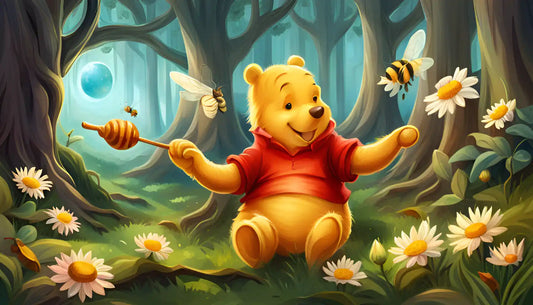
What Sustainability Means
Understanding Sustainability
Sustainability is a term that is increasingly gaining importance in today's world. It refers to the ability to meet the needs of the present without compromising the ability of future generations to meet their own needs. Sustainability is not just limited to environmental concerns; it encompasses social, economic, and cultural dimensions as well.
The Environmental Aspect
When it comes to sustainability, the environment plays a significant role. It involves responsible practices that aim to minimize the negative impact on natural resources and ecosystems. This includes reducing carbon emissions, conserving water, protecting biodiversity, and promoting renewable energy sources.
Sustainable environmental practices are crucial to prevent further degradation of our planet. Climate change, deforestation, pollution, and resource depletion are some of the pressing issues that call for immediate action. By adopting sustainable practices such as recycling, conserving energy, and using eco-friendly materials, we can contribute to preserving the environment for future generations.
The Social Aspect
Sustainability also takes into account the social aspect, which focuses on promoting social equality, justice, and well-being. It involves creating inclusive communities, ensuring access to education and healthcare, and fostering a sense of belonging and participation among individuals.
Social sustainability emphasizes the importance of eliminating poverty, reducing inequality, and promoting fair and just societies. It recognizes that sustainable development cannot be achieved without addressing social issues such as access to basic necessities, human rights, and social justice. By prioritizing social sustainability, we can work towards creating a society where everyone has equal opportunities and a high quality of life.
The Economic Aspect
Economic sustainability involves maintaining a healthy and stable economy that meets the needs of the present without compromising the ability of future generations to meet their own needs. It includes promoting fair trade practices, encouraging responsible consumption and production, and supporting businesses that prioritize ethical and sustainable practices.
Sustainable economic practices aim to strike a balance between economic growth and environmental preservation. They involve investing in clean technologies, promoting circular economy models, and reducing waste and pollution. By embracing economic sustainability, we can create a thriving economy that benefits both present and future generations.
The Cultural Aspect
Cultural sustainability recognizes the importance of preserving and promoting cultural diversity and heritage. It involves respecting and valuing different cultural traditions, languages, and customs. Cultural sustainability also emphasizes the need to empower communities to preserve their cultural identity and ensure the transmission of traditional knowledge to future generations.
Cultural sustainability goes beyond the preservation of tangible heritage sites and artifacts. It also includes intangible aspects such as language, music, rituals, and traditional practices. By celebrating and respecting cultural diversity, we can foster a sense of belonging, strengthen social cohesion, and promote intercultural dialogue.
The Importance of Sustainability
Sustainability is crucial for the long-term well-being of our planet and its inhabitants. By adopting sustainable practices, we can mitigate the negative impacts of climate change, reduce pollution, and ensure a healthier environment for future generations. Sustainability also promotes social equity, economic stability, and cultural preservation.
Without sustainable practices, we risk depleting natural resources, exacerbating social inequalities, and undermining the well-being of current and future generations. By incorporating sustainability into our personal lives, businesses, and policies, we can create a more sustainable and resilient future.
Challenges and Opportunities
While sustainability presents numerous benefits, it also comes with challenges. One of the main challenges is the resistance to change. Transitioning to sustainable practices often requires shifts in mindset, behavior, and infrastructure. Overcoming this resistance requires education, awareness, and collaboration among individuals, organizations, and governments.
Another challenge is the perceived higher costs associated with sustainable practices. However, it is important to consider the long-term benefits and savings that come with sustainable initiatives. For example, investing in energy-efficient technologies may have higher upfront costs but can result in significant energy savings over time.
Despite the challenges, sustainability also presents immense opportunities. It drives innovation and encourages the development of new technologies, products, and services that are environmentally friendly and socially responsible. Sustainable practices can lead to job creation, economic growth, and improved quality of life.
Individual and Collective Responsibility
Sustainability is not solely the responsibility of governments and organizations. Each individual has a role to play in promoting sustainability in their daily lives. Small actions such as reducing waste, conserving water, and supporting local and sustainable businesses can have a significant impact when multiplied across communities.
At the same time, collective action is crucial for achieving widespread sustainability. Governments, businesses, and communities need to work together to implement policies and practices that prioritize sustainability. Collaboration and partnerships are essential for addressing complex sustainability challenges and creating systemic change.
Conscious Choices
Understanding what sustainability means is essential in today's world. By embracing sustainable practices, we can create a better future for ourselves and future generations. It is our responsibility to act now and make conscious choices that prioritize the well-being of the planet, society, economy, and culture. Sustainability is not just a buzzword; it is a pathway towards a more resilient, equitable, and prosperous future.




